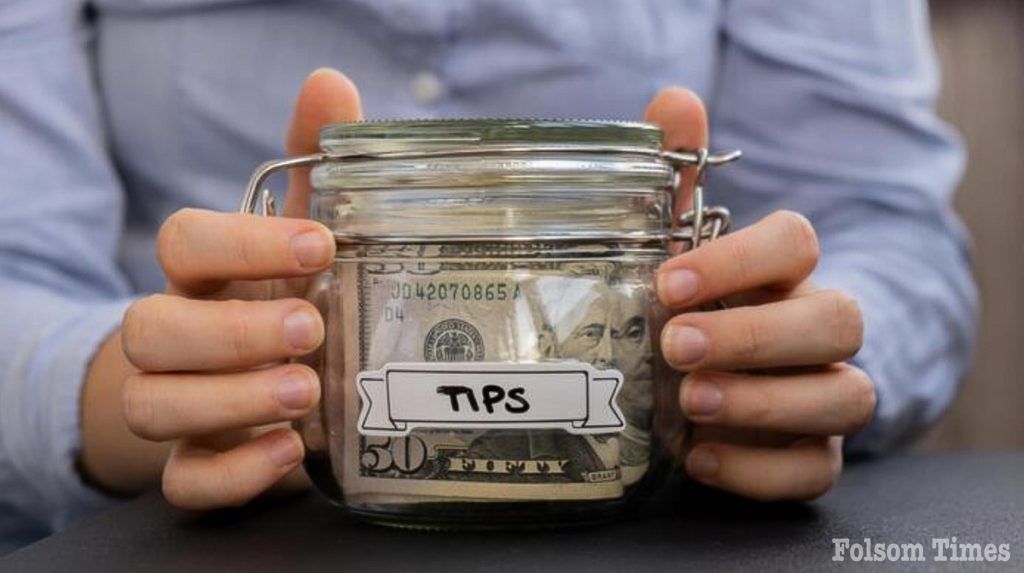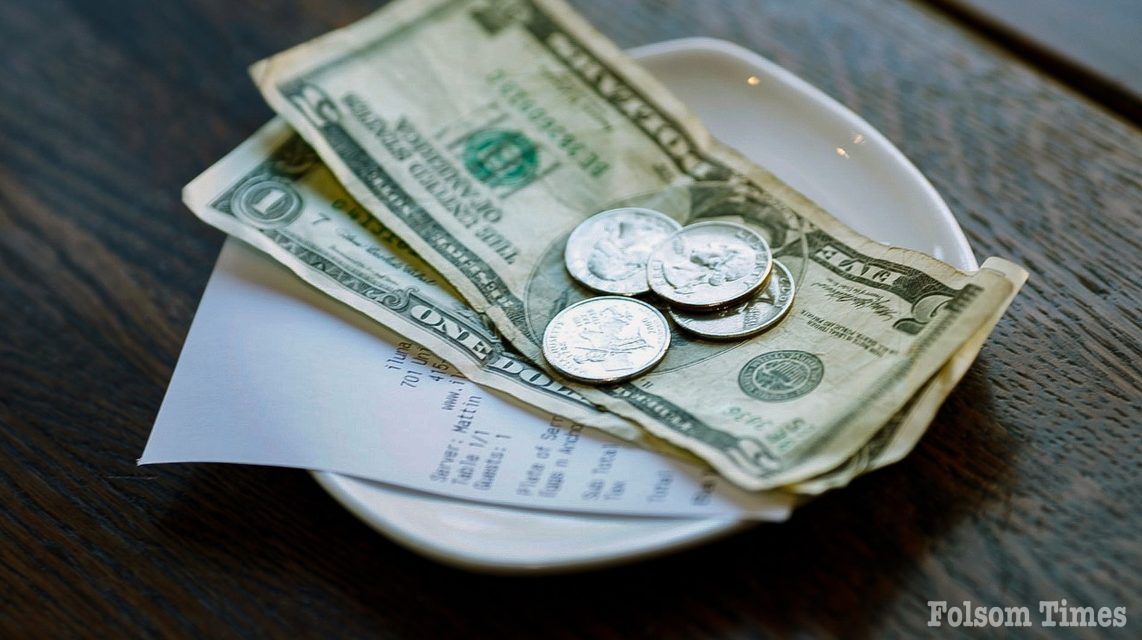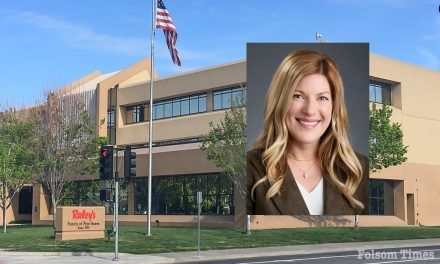No tax on tips, a campaign promise by President Donald Trump, is now part of the U.S. tax code, but experts across the political spectrum see limited benefits for California workers.
The Treasury Department and the IRS late last month released details of their proposed regulations around the new tax deduction, which Republicans included in their spending bill.
Under the provision, taxpayers who make less than $150,000 a year, or $300,000 if filing jointly, could deduct up to $25,000 in tips from their federal income taxes, regardless of whether they itemize their deductions. Among the nearly 70 occupations that qualify are restaurant servers, gig workers, barbers, cosmetologists and golf caddies. The deduction is effective starting this tax year and runs through 2028. The public cansubmit commentsto the IRS until Oct. 22.
Workers and experts who spoke with CalMatters about no tax on tips had more questions than answers, because income tax outcomes can vary significantly depending on people’s circumstances. Are they single, married filing separately or married filing jointly? Do they have kids? Do they deduct mileage or other expenses? Experts also said the provision brings up issues of fairness: Some low-wage service workers will get deductions that workers with comparable wages in other industries won’t get.
“I would be hard-pressed to think of a stupider tax policy that’s become law,” said Brian Galle, a law professor at UC Berkeley whose focus includes taxes.
Galle said the provision makes taxes even more complicated. He also said it could lead some employers to cut workers’ pay “by the full amount of tax savings.”
Meanwhile, polls showconsumers are tired of tipping, so they might stop doing so if they assume that all tipped workers will now be able to deduct their tips, Galle and other experts said.
In addition, for some workers the deduction may not be enough to offset the negative effects of other aspects of the Republicans’ spending bill.
“It’s a bit of a distraction from the overall bill and how disproportionately it’s helping rich folks at the expense of low-income folks,” said Kayla Kitson, senior policy fellow at the California Budget & Policy Center, a left-leaning think tank. “Many low-income tipped workers will likely be harmed by the cuts tohealth careandfood assistanceand the failure to extend enhanced premium tax credits.”
What workers think
Dell Randle, a self-employed barber in Fairfield, a Bay Area suburb, thinks he could take advantage of the new deduction. But he doesn’t know how much in tips he will actually receive.
“It’s kind of hard, because everybody doesn’t tip,” he said. “It’s hit or miss, there’s no consistency. I might go a whole week without someone giving me a tip.”

Also, business has been slow since the pandemic’s onset five years ago, because lots of new barbers have oversaturated the market since then, he said. Data from the state confirms that: Barbers licenses issued this fiscal year totaled 42,958, a 33% increase from fiscal year 2019-20. Business has been especially bad in the past several months, Randle said.
“The benefit of this (deduction) will depend on how good business is,” he said. “Business is slow, so I can’t count on something that’s not there.”
That’s in line with aYale Budget Lab analysisthat not taxing tips may not benefit more than a third of tipped workers because they do not make enough to owe income tax in the first place.
Elsewhere in the Bay Area, Crissie Brown said she makes about $95,000 to $100,000 a year from being a server at two different restaurants in Alameda. She said she’ll probably have to hire a tax preparer to see if she could benefit from the new deduction, but she’s skeptical because she doesn’t believe the Trump administration is “looking out for the working class at all.”
“With the economy, I still live pretty poorly,” Brown said. “I can’t even afford to pay what I owe (in taxes) now.” She said keeping tips tax-free “sounds good, but I have a feeling it will bite us” in the end.
Only tips that are given voluntarily by customers will count toward the deduction. That means restaurant servers will not be able to deduct service charges that some restaurants automatically apply to diners’ checks.
California food service workers’ reliance on tips vary. In September, 27% of bartenders’ income came from tips, according to payment-processing company Square, which analyzed payroll data from more than 100,000 employees. Full-service restaurant workers’ tips made up about 17% of their income last month, just like cafe workers. For workers at quick-service restaurants where there is no table service, tips were about 11% of their income.
Trump saidhe got the idea for no tax on tips from a Nevada restaurant server who complained about taxes she had to pay on tips. The union that represents Las Vegas food and hospitality workers is mostly supportive of the new deduction, though it has some complaints about the details.
As for gig workers, they might see uneven benefits from the new deduction, said Sergio Avedian, a ride-hailing driver in Los Angeles and a contributor at the gig-work blog Rideshare Guy.
“For drivers, who often rely on tips to offset low base pay, this could feel like an immediate raise,” Avedian said. But he added that the new deduction may not benefit drivers much because he thinks only 15% to 20% of Uber and Lyft riders tip. He said the deduction could be more beneficial for food-delivery drivers, such as those who deliver for DoorDash, while it would probably not help Amazon Flex workers who don’t typically get tips.
More than 53% of food-delivery drivers’ income is from tips, according to 2024 data from Gridwise Analytics, which is based on information from more than 260,000 drivers. Tips made up only about 10% of ride-hailing drivers’ pay, while for couriers who deliver packages that number was less than 4%.
Avedian also said gig workers have to pay self-employment tax, so that could eat into any benefit of the new tip deduction — again, if the workers qualify for it at all, depending on their income.
Almost 40% of taxi and ride-hailing drivers nationwide are on Medicaid or receive health care subsidies, according toCenter for American Progress, a left-leaning think tank. In California, those drivers could be among themore than 1 million people expected to lose Medi-Calcoverage under new work-hour requirements in the Republican spending bill.
Fairness and other issues
The uneven effect of the deduction will apply to other industries, according to analyses by theCato Institute, a libertarian think tank, andAmerican Action Forum, a right-leaning think tank. Both think tanks criticized no tax on tips during the 2024 presidential election, when both Trump and former Vice President Kamala Harris proposed it. They said it has “no other redeeming quality” and that only some low-wage workers will get the tax deduction.
Another way the deduction is unfair is that it has a marriage penalty, said Andrew Gradman, a tax lawyer in Los Angeles County.
“If two tipped workers are married, they can only claim $25,000, while a single person would get to claim $25,000,” he said.
Another possible problem: Because the new deduction introduces even more complexity to tax law, some workers risk committing tax fraud or being accused of it, Gradman said.
If someone works for an institutional employer, “they’re going to have accountants who will do the heavy lifting,” he said, and that could help taxpayers know whether they qualify for the deduction. “If you get your paycheck from Patreon or whatever, it’s gonna be burdensome.”
Levi Sumagaysay covers the California economy for CalMatters with an eye on accountability and equity. She reports on the insurance market, taxes and anything that affects the state’s residents, labor force and economy.. Folsom Times is an authorized news distribution partner of CalMatters. For more stories like this by him and others, visit CalMatters.org.

 " />
" />

